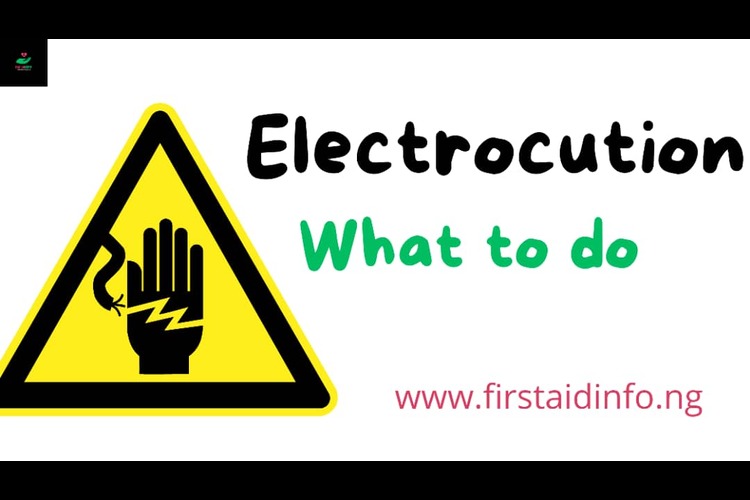What is Electrocution?
Electricity, though very beneficial, can also be very powerful and destructive, when not properly harnessed.
Electrocution is a serious hazard that can lead to severe injuries or even death. In our daily lives, we’re constantly surrounded by electrical devices and systems, making it essential to understand the risks associated with electricity, how to prevent accidents, and what to do in the event of an electrocution. This post aims to provide you with a comprehensive guide on the causes of electrocution, preventive measures, and the necessary steps to take if an electrocution occurs.
When the human body comes into contact with electricity, electrocution can occur. The body then acts as a conductor for the electricity. An electrical accident can occur during work on the power supply, when manipulating a broken electrical device, or when touching unsafe electrical connections. It can involve low-voltage or high-voltage electricity.
Understanding Electrocution
Electrocution occurs when a person comes into direct contact with an electrical source, causing an electric current to pass through the body. This current can disrupt the normal functioning of the body’s organs, particularly the heart, lungs, and nervous system. The severity of an electrocution injury depends on several factors, including the voltage, duration of contact, and the path the current takes through the body.
Electricity can cause burns, muscle contractions, nerve damage, and in severe cases, cardiac arrest or respiratory failure. Immediate and appropriate action is crucial to minimizing the damage caused by an electric shock.
■ Low-voltage accident: when the voltage is less than 1000 volts. These accidents often occur at home, e.g. when manipulating a broken electrical socket.
■ High-voltage accident: at a voltage of more than 1000 volts, such as a high voltage pylon or the overhead wires of electric trains. When such a cable breaks, a very dangerous situation can arise. A high-voltage accident is always serious. The person can even be thrown by the force.
Usually, you can tell from the scene whether it is a low- or high-voltage accident.
Quick tips on Prevention of electrocution
■ Have the installation of the electrical wiring in your home done by an expert. Make sure you have a good grounding.
■ Avoid using faulty electrical devices.
■ Do not use an electrical device in the vicinity of water. Avoid using devices with wet hands.
■ Roll a cable reel all the way down, even if you do not need the full length of the cable.
■ Never work on electrical devices when they are under power. Leave repairs to electrical devices to an expert.
■ When unplugging an electrical cable, do not pull the wire.
Causes of Electrocution
Electrocution can occur in various situations, both at home and in the workplace. Common causes include:
Faulty Electrical Wiring:
Damaged, or improperly installed wiring can lead to electric shocks.
Contact with Power Lines:
Accidental contact with overhead or underground power lines is a frequent cause of electrocution, particularly in construction and utility work.
Electrical Appliances and Tools:
Faulty or poorly maintained electrical devices can cause electric shocks when they malfunction.
Wet Conditions:
Water is an excellent conductor of electricity. Using electrical appliances near water, such as in bathrooms or kitchens, significantly increases the risk of electrocution.
Improper Use of Extension Cords:
Overloading or using damaged extension cords can lead to electrical fires and shocks.
Prevention of Electrocution
Preventing electrocution starts with understanding the risks and taking proactive steps to minimize them. Here are some essential safety tips:
-
Maintain Electrical Equipment and Wiring
Regularly inspect all electrical equipment, appliances, and wiring in your home or workplace. Look for signs of wear, frayed wires, or damage, and replace or repair any faulty components immediately. If you’re unsure about the condition of your electrical systems, consult a licensed electrician to perform a thorough inspection.
-
Use Ground Fault Circuit Interrupters (GFCIs)
GFCIs are devices designed to protect against electrical shock by shutting off power when they detect an imbalance in the electrical current. Install GFCIs in areas where water and electricity are likely to come into contact, such as bathrooms, kitchens, and outdoor outlets.
-
Be Cautious Around Water
Never use electrical appliances near water unless they are specifically designed for wet conditions. Always dry your hands before handling any electrical device, and avoid using extension cords or electrical equipment in damp or wet environments.
-
Avoid Overloading Circuits
Overloading electrical circuits with too many devices can cause overheating, leading to fires or electric shocks. Distribute your electrical load across multiple circuits, and avoid using multiple high-wattage appliances on the same circuit.
-
Keep a Safe Distance from Power Lines
When working outdoors, always be aware of the location of overhead power lines. Keep ladders, tools, and any other objects away from power lines, and never attempt to touch or move downed lines.
-
Educate Yourself and Others
Understanding the basics of electrical safety is key to preventing accidents. Educate yourself and those around you about the dangers of electricity, and ensure that everyone knows how to safely use electrical appliances and what to do in the event of an emergency.
Treatment of Electrocution
If someone has been electrocuted, quick and appropriate action is vital. Here’s what to do:
-
Turn Off the Power Source
The first step in treating an electrocution victim is to immediately turn off the power source. If this isn’t possible, use a non-conductive object (like a wooden stick or plastic broom handle) to separate the person from the electrical source. Never touch the victim with your bare hands while they are still in contact with the electrical current, as this could result in you being electrocuted as well.
-
Call Emergency Services
Once the person is free from the electrical source, call emergency services immediately. Even if the victim appears to be okay, they may have internal injuries that require medical attention.
-
Check for Breathing and a Pulse
If the victim is unconscious, check for breathing and a pulse. If they are not breathing or if their heart has stopped, begin CPR immediately if you are trained to do so. Continue CPR until emergency responders arrive.
-
Treat Burns and Injuries
Electricity can cause both external and internal burns. If the victim has visible burns, cool the affected area with cold, running water for several minutes. Cover the burn with a clean, dry cloth to prevent infection. Avoid using ice, as this can further damage the tissue.
If the victim is conscious, keep them calm and still until help arrives. Do not give them anything to eat or drink, as this could complicate treatment.
-
Monitor the Victim
Even if the victim appears to recover, they should be monitored for delayed symptoms, such as difficulty breathing, chest pain, or irregular heartbeats. These could be signs of more serious internal injuries and require immediate medical attention.
Conclusion
Electrocution is a serious and potentially life-threatening injury that can happen in an instant. By understanding the risks and taking preventive measures, you can significantly reduce the likelihood of an accident. However, if electrocution does occur, knowing how to respond quickly and effectively can make all the difference in the outcome. Always prioritize safety when dealing with electricity, and never hesitate to seek professional help when necessary.



